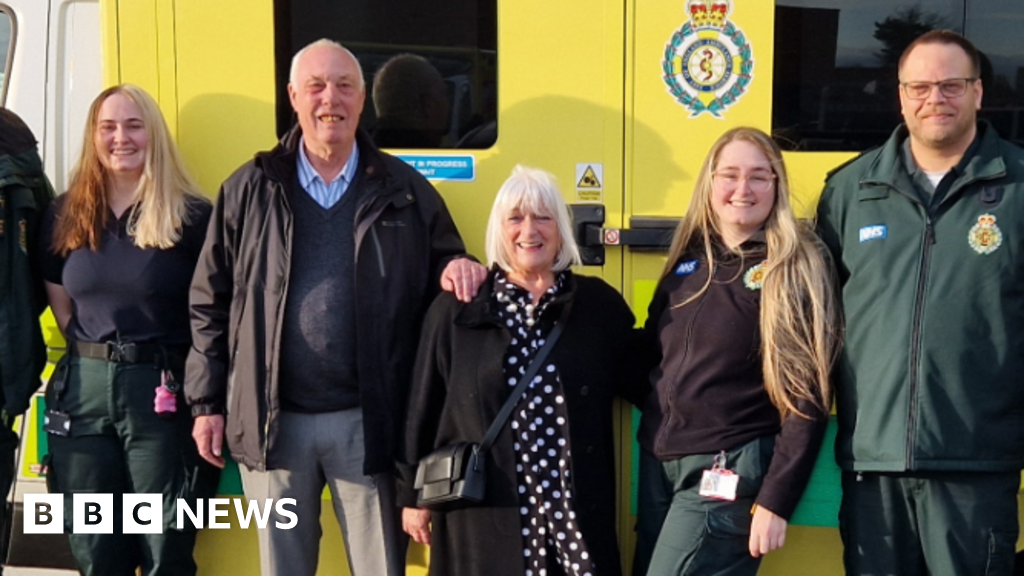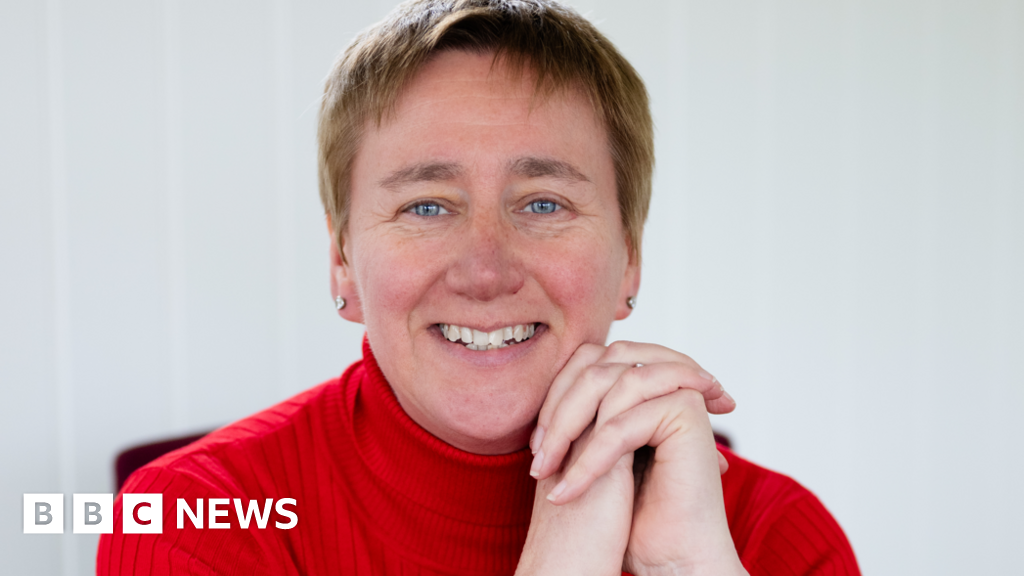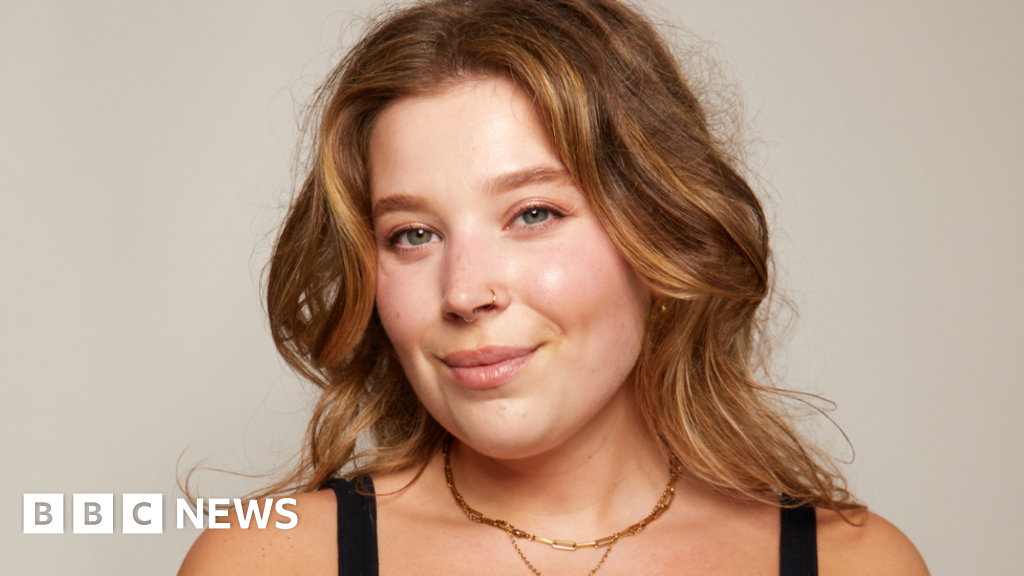Perinatal OCD: ‘I thought I would harm my baby’
A Welsh actress has described how obsessive compulsive disorder (OCD) after she gave birth made her fear she was a danger to her baby.
Kimberley Nixon, the star of Channel 4 sitcom Fresh Meat, said the natural worries about her baby's well-being escalated into deep anxiety.
OCD is a mental health condition where a person has obsessive thoughts and compulsive behaviours.
"I was just convinced that I wasn't doing things right. I wasn't feeding him right. What temperature is he supposed to be?" she said.
"Every time he cried I was just sort of shaking - I just got really hyper vigilant and terrified."
Kimberley was eventually diagnosed with perinatal OCD, which is when you experience OCD during pregnancy or in the first year after giving birth.
However, prior to the diagnosis, she said every time she looked online for help, all of the advice was about "baby blues and feeling sad".
"I didn’t feel sad, I felt scared," she said.

 Kimberley Nixon
Kimberley Nixon
Kimberley said she felt scared and alone while suffering perinatal OCD without support or a diagnosis
The Pontypridd actress, who also featured in the films Wild Child and Angus, Thongs and Perfect Snogging, had IVF to conceive her much-longed for son.
He arrived during the pandemic in 2020 and, after a traumatic birth, Kimberly soon began to have disturbing thoughts that she might accidentally hurt him.
"Those thoughts - it was like what could happen to him? How can I protect him? - they morphed into what if you're a danger to your baby?" she told Radio Wales’ Books That Made Me with Lucy Owen.
"What if you're so tired that you drop him or what if you just snap and become a completely different person?
"Now objectively, I can see that wouldn't have happened, but you can become really unwell with it like I did.
"You don't know what's real anymore and you don't trust yourself.
"And so this baby, that I loved so much, that was finally here, I was terrified to go near because I didn't want anything bad to happen to him."
What is perinatal OCD?
Perinatal OCD is when you experience OCD during pregnancy or in the year after childbirth.
You may also hear the disorder being referred to as postpartum OCD.
It often, but not always, revolves around significant fear of harm coming to your baby, with the worries often focused on accidentally or deliberately harming your baby.
The NHS says "it is important to note that this is completely normal and very common to occasionally experience these worries".

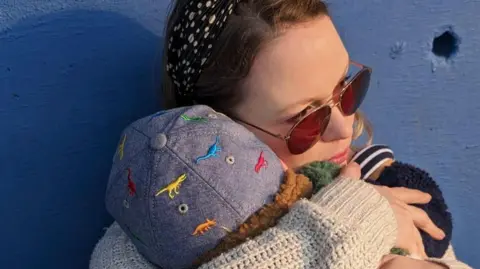 Kimberley Nixon
Kimberley Nixon
Kimberley says she now has an "incredible relationship" with her son she thought she'd never have
Simon Jones, of Mind Cymru, said it is "normal" to worry about your baby's wellbeing, and to want to protect your baby.
"If you start to experience obsessive thoughts and compulsive behaviours that affect your daily life and wellbeing, you may be experiencing perinatal OCD," he added.
“The obsessions and compulsions are likely to relate to feelings about being a parent and your baby.”
The National Childbirth Trust says that in pregnancy, the rate of OCD may be as high as 5% and postnatally 9%, with rates of OCD similar in men and women.
'It was really invisible'
Kimberley said she had never heard of perinatal OCD until she was diagnosed.
"I became really poorly after he was born, but I wasn't quite ticking any of the postnatal depression boxes," she said.
"And that scares you, when you're not kind of fitting into a diagnosis, and nobody seemed to know what to do with me.
"OCD to me was being very neat and liking things in a certain way - I'm one of the messiest people I know, I drive my husband insane, I wasn't doing any of the compulsion bit of OCD.
"All of my compulsions were mental. So it was really invisible and really hard to read, hard to pick up on."

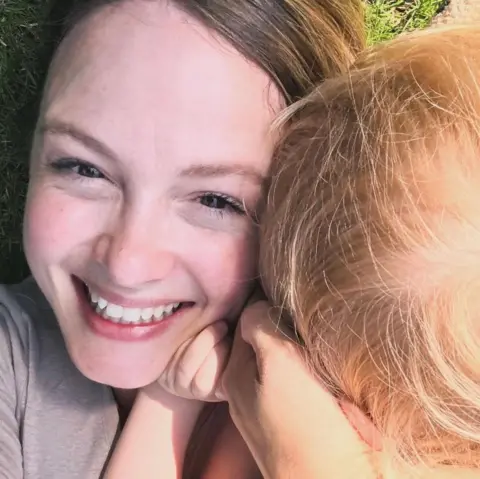 Kimberley Nixon
Kimberley Nixon
Kimberley has started sharing her experiences to her more than quarter of a million followers on Instagram
Mr Jones explained: “OCD has two main parts: obsessions and compulsions. Obsessions are unwelcome thoughts, feelings, images, urges, worries or doubts that keep coming into your mind.
"Compulsions are repetitive things that you do to reduce the distress or uncertainty caused by obsessions."
He said there remains a stigma around perinatal mental health issues, but Mind Cymru is encouraging anyone who thinks they may be affected, to seek support.
"It can be hard to open up and talk to someone about your obsessions or compulsions, which may lead to the condition not being diagnosed and lead to feelings of isolation."

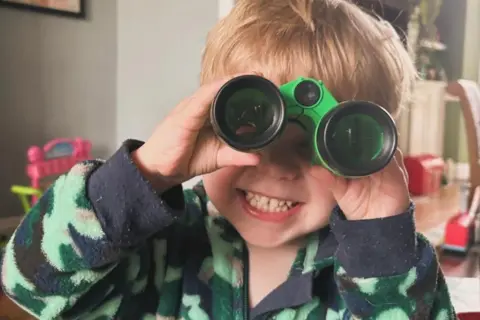 Kimberley Nixon
Kimberley Nixon
Kimberley says her experience has made her relationship with her son "even more special"
Kimberley has more than a quarter of a million followers on Instagram and she's been sharing her mental health journey on the social media platform to raise awareness of the condition.
"I started to be very honest about my condition, while I was still very poorly with postnatal mental illness," she said.
"Over the last three years, I've had thousands and thousands of messages. And from everybody - men, women, new mothers with two-week-olds."
She said she decided, while at her lowest point and being unable to find anyone to relate with online, that she wanted to be there for people going through a similar experiences in the future.
Kimberley is now recovering and adores spending time with her little boy.
"I've got this incredible relationship with my son, that I was so worried I would never have," she said.
"So I really want people to know that you can, and will, get better and that it can actually make your relationship with your child even more special."
 (1).png)
 4 months ago
6
4 months ago
6
